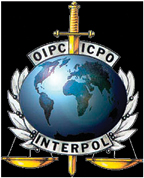 Following the attacks of September 11th, 2001, the philosophy within the United States of combating terrorism with “law enforcement” diametrically changed to the “War on Terror.” As we watched the decade come to a close, we saw the American political will to fight the War on Terror lose steam.
Following the attacks of September 11th, 2001, the philosophy within the United States of combating terrorism with “law enforcement” diametrically changed to the “War on Terror.” As we watched the decade come to a close, we saw the American political will to fight the War on Terror lose steam.
While we still have military personnel engaged in the battle, the signing December 16th of Executive Order (EO) 13524 for-ever changed the focus and definition of the enemy in this conflict. With his signature, U.S. President Barack Obama aligned with the international community and returned to the mentality of using law enforcement instead of military might against terrorism.
The agency of choice? INTERPOL—the International Criminal Police Organization.
Obama’s EO 13524 amended former U.S. President Ronald Reagan’s EO 12425 as follows:
Amending Executive Order 12425 Designating Interpol as a Public International Organization Entitled to Enjoy Certain Privileges, Exemptions, and Immunities
By the authority vested in me as President by the Constitution and the laws of the United States of America, including section 1 of the International Organizations Immunities Act (22 U.S.C. 288), and in order to extend the appropriate privileges, exemptions, and immunities to the International Criminal Po-lice Organization (INTERPOL), it is hereby ordered that Executive Order 12425 of June 16, 1983, as amended, is further amended by deleting from the first sentence the words ‘‘except those provided by Section 2(c), Section 3, Section 4, Section 5, and Section 6 of that Act’’ and the semicolon that immediately precedes them.
Barack Obama
The White House
December 16, 2009
U.S./INTERPOL Relations
In 1983, Reagan understood the value of cooperating with the international community in joint efforts to deal with the increased activities of criminal elements that straddle borders. He also wisely inserted limitations into EO 12425 to ensure the rule of American law did not become subservient to inter-national whims.
Obama removed those limitations. Section 2c of the United States International Organizations Immunities Act will now be applied to the organization of INTERPOL.
Property and assets of international organizations, wherever located and by whomsoever held, shall be immune from search, unless such immunity be expressly waived, and from confiscation. The archives of international organizations shall be inviolable.
This essentially presents the picture of an international police force operating with “diplomatic immunity” within the United States. This fact alone is highly disturbing. However, it is the sequence of events leading up to December 16th that make us question the motivation behind this action.
During his presidential campaign in March of 2008, Barack Obama was pointedly ambiguous when asked whether or not he would be a signatory to the Rome Treaty and align the United States with the International Criminal Court (ICC).
[The Rome Statute of the International Criminal Court (Rome Treaty) was adopted at a diplomatic conference in Rome on July 17th, 1998, and entered into force the International Criminal Court on July 1st, 2002. Former President Bill Clinton originally signed the Rome Treaty near the end of his term in office and former President George Bush reversed U.S. participation upon taking office.]
Obama’s former foreign policy advisor, Samantha Power clarified his position regarding the Rome Treaty and the ICC.
If Barack Obama ratified the ICC or announced his support for it on day one, two things would happen. One, it would have the chance of discrediting the ICC in the short term, and two, he would so strain his relations with the U.S. military that it would actually be very hard to recover. There’s a whole lot of internal diplomacy, internal conversations about sovereignty and so forth that have to be had before you can think about that.
Throughout 2009, Obama addressed these issues. He worked with military commanders to develop a plan to with-draw from Iraq (the most unpopular battlefield in the War on Terror). He committed to the closure of Guantanamo Bay and moved the prosecution of enemy combatants from military tribunal to civil court. He made speech after speech in foreign countries decrying America’s image in the international community.
The next step occurred in a planning session held in October 2009 in Singapore. The meeting was held under the auspices of INTERPOL’s 78th General Assembly. More than 60 foreign, justice and home affairs ministers from around the world joined with senior police officials from 153 countries and the United Nations to endorse a declaration that will see:
INTERPOL, the United Nations Department of Peacekeeping Operations (DPKO) and participating governments establish a plan of action to promote international police peacekeeping as an essential counterpart to the military in helping re-establish the rule of law and rebuild society.
Their plan is to enhance the role of police in peacekeeping and peacebuilding operations at the forefront of the international security agenda.
The international police force is INTERPOL and they are the law enforcement arm of the International Criminal Court. The Obama administration supports this plan, which necessitated the signing of Executive Order 13524 giving INTERPOL ultimate law enforcement authority within the borders of the United States.
Obama is making good on his campaign promise to change the way the world looks at America by changing the way America looks.
Unfortunately, some legal analysts are appropriately concerned about the possible arrest and prosecution of American military personnel for war crimes in an internationally un-popular conflict. While some sources have reported that Obama is using diplomatic channels to ensure this does not happen, the same cannot be said for the elected and appointed officials who initiated the war in Iraq.
If Obama signs the Rome Treaty before the scheduled troop withdrawals from Iraq and the closing of Guantanamo Bay, the bargaining chip would be removed and American military personnel and politicians would be at the mercy of the whims of the United Nations, the International Criminal Court and INTERPOL.
While these international organizations were created originally for altruistic reasons and should not be considered ominous in themselves, the slippery slope of authority has opened doors that will be difficult, if not impossible, to shut in the future.
In his 2009 book The Perils of Global Legalism,1 Eric A. Posner writes:
Global legalists have long since dropped the conventional view that international law is based on the consent of states: international law transcends the interest of states and holds them in its grasp.
Posner sees global legalism as a utopian concept built on unsustainable premises about human nature. Indeed, 2 Timothy 3:1-5 describes the true condition of humanity in the perilous times that are upon us:
This know also, that in the last days perilous times shall come. For men shall be lovers of their own selves, covetous, boasters, proud, blasphemers, disobedient to parents, unthankful, unholy, Without natural affection, trucebreakers, false accusers, incontinent, fierce, despisers of those that are good, Traitors, heady, highminded, lovers of pleasure more than lovers of God; Having a form of godliness, but denying the power thereof; from such turn away.
2 Timothy 3:1-5
Additionally, the conclusion was drawn by the authors of Ruling the World? Constitutionalism, International Law, and Global Governance2 that the constitution-like aspects of treaty-based organizations are more than just cooperative agreements among members. They actually become perpetual institutions whose ongoing authority does not require continuing consent from member states.
The foundation stones of global governance are quickly re-placing the tenets of the Constitution of the United States. “We the People” may wake up one day to find that we have broken a law we did not know existed; we have been arrested and detained by members of a police force who do not recognize the “rights” we have requested; and, we have been proclaimed guilty and sentenced by a judge in another country…
This is our new reality; the reality of Executive Order 13524.
Notes:
Posner, Eric A., The Perils of Global Legalism, University Of Chicago Press, 2009.
Dunoff, Jeffrey L. and Trachtman, Joel P. editors, Ruling the World? Constitutionalism, International Law, and Global Governance, Cambridge University Press, 2009.





